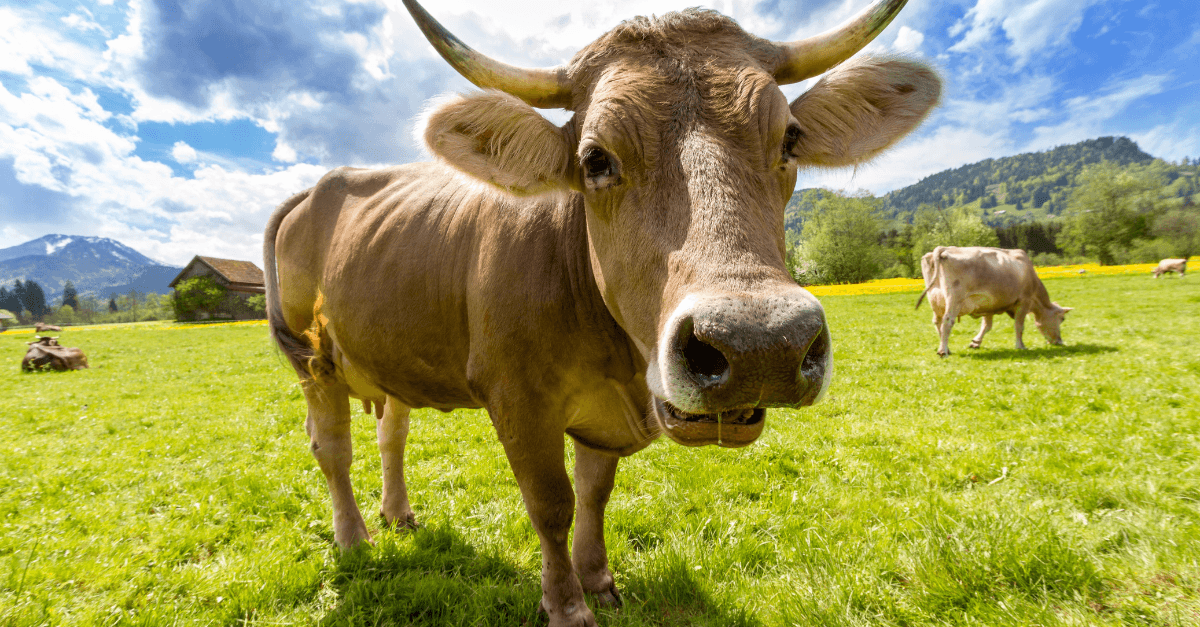Interesting video from Earthling Ed and of course topical. It's a very good analysis and a pretty comprehensive treatment. I think several of his arguments can be addressed though. Here is my take on those.
1. The matter of insects as a food source is not really about replacing all food with insects, so it hardly constitutes the "future of food". We might more reasonably say insects could be part of the future of food. That makes the question more open because we aren't having to critique the idea we are suddenly going to be farming vast numbers of insects.
2. I am not sure I agree that feeding insects some kind of grain-based feed or whatever is directly affecting human food supply. I don't think it is true that we can get the same value from the feedstock because that food may not be human edible. Consider soy. We mostly grow that for oil. Absent animal feed as a market and we would still need vegetable oil. It doesn't seem unreasonable to repurpose soy meal as a feedstock for insects. However, right now - which is what we are talking about - many insect producers do use waste foods.
3. Ed claims that recent research tells us that soy is more suitable as a food for people than mealworms on a land area basis. I'd need to read the research to see why, as Ed just finished telling us that insects are low footprint. Presumably, this is based on the idea that growing grain as a feedstock requires some area of land. If so, then of course we would find that outcome as barley and maize are not as protein dense as soy, so we would need more land to produce enough feed for the insects. However, as I pointed out above, we could simply repurpose foods already grown for human uses to provide feedstock as well. I would need to know just what parts of a crop are useful as a feedstock, but I think this claim is somewhat thin. It also rests on the idea that we are critiquing very large scale commercial farming of insects and tells us nothing about how effective growing insects on human food waste might be (which is, after all, one viable option).
4. In the same vein, claiming that growing insects must as a matter of course lead to large scale CAFO systems is a hypothetical. Yes, that *could* happen, but it doesn't invalidate the underlying concept.
5. Ed's claims about sentience are somewhat over-egged in my opinion. First we have no idea what kind of internal experience they have. In theory, a nervous sysytem can function without experience - experience/feelings (qualia) may really be little more than information of a certain kind about the world and not all animals may need that information. As well, research suggests some insects, such as locusts and grasshoppers, lack true pain responses, so it seems reasonable to conclude that crickets also may not.
6. Ed claims that as insects may have subjective mental states, they have moral value. Fair enough. But it doesn't follow that we have to afford them the same moral value as cows, for example. That's Ed's take on it - others might disagree. We don't have to behave as Ed would prefer. Consider that insects are r-strategists, cows are K-strategists.
7. My main criticism of Ed's argument though is what we have already talked about. Numbers. Ed takes a stab at calculating how many insects would be needed to replace cows in our diet. Fair enough, but he should also take a stab at calculating the insect toll for growing the required plants to replace cows in our diet. After all, he is the one claiming all insects have moral value.
Ed tells us that we would need to kill 363,000 crickets to obtain the same calories as one cow, and that as we slaughter 324 million cows each year we would need to kill 120 trillion crickets. I will take his word for it on those numbers, however here is a calculation to tell us how many insects might be killed to replace those cows. If it is notably more than 120 trillion, we have a dilemna.
By the way, I think we should use protein as the relevant basis given that calories are different for different plants. We may need a lot more tomatoes than soybeans to get the same calories, and that affects land area needed. Also, taking meat out of the equation probably means we should replace it with a protein dense alternative such as beans, chickpeas, lentils and so on.
A good average return on a slaughtered cow is about 250kg of meat. 324 million cows slaughtered therefore returns about 80 billion kilograms of meat. That is about 20 billion kg of protein. When converting protein into crop yield requirements, we should multiply by about six to allow for lowered protein content and lower bioavailablity. This means we need about 120 billion kg of chickpeas or similar.
Now, chickpeas and similar crops yield on average about 1800kg/hectare as actual food. That means we need about 67 million hectares to grow that much chickpeas.
We now have a number into which we can plug possible insect deaths per hectare. We are going to count all insects as Ed's concern is all insects. Looking at earlier estimates listed above, we find deaths per hectare may be as high as 25 million. Let's discount that to 10 million to allow some room for error. Of course, it may be far less, it may be far more.
But IF it is 10 million or more, we may be killing as many as 670 trillion insects.
So. Ed worries that replacing cows with crickets could cause up to 120 trillion insect deaths and so we should eat plants instead. Yet, it may be the case that doing so will cause up to 700 trillion insect deaths, perhaps more. It could reasonably stretch to one quadrillion deaths.
I think he should have done this calculation. Yes, of course this is a completely wild guess with only some basis in fact and there probably are variables I have overlooked. But it tells us that we do need to consider how many insects are really killed to grow plant foods, IF we are to care about insects.
Me, I don't, at least not that much. Nor about oysters and mussels etc for much the same reasons. That said, I think working out what is the best tack for a vegan to take has more dimensions than simply counting numbers. You must too if you think that eating plants is less harmful than eating crickets or cows.



